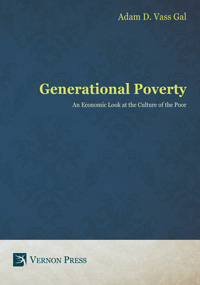Sociology of Love
The Agapic Dimension of Societal Life
by Gennaro Iorio (University of Salerno, Italy)
Purchase this book
(click here to change currency)
"For far too long, love has been considered a private concept, closed in the sphere of intimacy, friendship or religiosity. Yet love has also a social and public value. This is what Gennaro Iorio states in his new book Sociology of Love thus introducing love not only as a new critical concept for the social sciences, but also as a new principle for social and political emancipation of humanity.
The aim of the sociologist, professor at the University of Salerno, is ambitious and innovative: bucking the pessimistic trend of contemporary sociology, he discovers that the reality we live in is impregnated with love. The challenge is to recognize it and to call things by their proper name; gratuity, overabounding and creativity are aspects that we experience in everyday life, but they are also expressions of small-great heroisms, which offer an alternative to instrumentalism, uncertainty and consumerism, typical of contemporary social life.
The book by Iorio deserves to be read, because it flies in the face of the weak thought emerging in social sciences, and proposes a new direction for the contemporary debate: on the shoulders of giants such as Sorokin, Simmel, Giddens, Boltanski and Honneth, it is time to go back and rediscover the ordinariness of the relationships which makes love something extraordinary for the whole society."
Silvia Cataldi
University of Cagliari
Department of Social Sciences and Institutions
"What is agape? And, most importantly, when does agape become a society? These are the key questions addressed in the book Sociology of Love by Gennaro Iorio (Vernon Press, 2014).
Not all forms of love are equal. Neither do all of them equally contribute to explain the actions, interactions and relationships that weave the plot of the social fabric. Among these forms agape is decisive, even if sociology is late to recognize this fact. The originality of this book is that it reads agape within the sociological framework as a social phenomenon even before it becomes a theological or a metaphysical one. The author recovers and innovates studies of love by the classics of sociology, as Weber, Sorokin and Simmel. The research distinguishes agape from similar phenomena as eros, philia, gift and grace and discovers authors and researches about agape, especially in reference to identity processes, as postfreudian studies of Winnicott, social theory of Honneth, the philosophy of Marion. Boltanski becomes main author in the direction of critical sociology as a leading approach to this work. Not a Christian sociology, therefore, but a critical sociology. A sociology that, as empirical social science, rather than starting from universal and abstract axioms, or providing regulatory requirements, is based on empirical and observable data with which it grasps the social reality. This objective is also guaranteed through the study of the three empirical cases that make this study a full and original work with regards to the degree of conceptual and sociological innovation on the subject. The work has a clear ability to address a heterogeneous audience without any interpretative confusion between the various points of views: Among those who like the theme are theologians, Christians and, especially, social scientists."
R. Iannone
Department of Political Science, Sapienza - University of Rome
This short book deals with a sociological concept: love-agape. It is an attempt to demonstrate that love-agape resists, indeed insists, as a fact that cannot be reduced or concealed. Its simple goal is to introduce agape into the vocabulary of sociological analysis by demonstrating its potential to demarcate and to interpret social phenomena. Love-agape is presented as a critical concept. On the one hand, love-agape denounces the risks linked to the needs of closed groups, often absolutist and fundamentalist. On the other hand, it represents a concrete reality, lying at the root of a particular type of sociality. A sociality that, rather unconventionally, recognizes differences and distances, but also characterizes their condition of being together, as community founded on the recognition and respect of subjectivity.
1. What is Agape
1.1. The rediscovery of love
1.2. Which research method
1.3. The concept of agape
1.3.1. The states of peace by Boltanski
1.3.2. A critical note
1.4. Definition of agape
1.5. The five dimensions of agape
1.6. Six agapic propositions
1.7. Conclusion
2. What agape is not:
2.1. Eros
2.2. Philia
2.3. Gift
2.4. Conclusion
3. Love in the sociological tradition
3.1. Simmel
3.2. Weber
3.3. Sorokin
3.4. Conclusion
4. Agape: the micro and the macro
4.1. The subject and his/her identity
4.2. In the historical-comparative evolution of the West
4.3. Conclusion
5. Case studies
5.1. Perlasca
5.2. Peer to Peer
5.3. Divjak: political resistance
5.4. Conclusion
6. Epilogue
Gennaro Iorio, PhD., is Associate Professor of Sociology at the University of Salerno. He has published a number of works on classical sociology, sociology of poverty and sociology of new technology. He teaches sociology in postgraduate, masters and doctoral courses.
Subjects
Sociology
Series
Series in Sociology
Related services
Find in a library near you Download HQ cover Find in Bookshop.orgSee also
Bibliographic Information
Book Title
Sociology of Love
Book Subtitle
The Agapic Dimension of Societal Life
ISBN
978-1-62273-157-2
Edition
1st
Number of pages
134
Physical size
236mm x 160mm

![Sociology of Love [Paperback edition]](/file/3232/ce0c37bc8436523cd2b6ff780a6eb5b9/1486538286.jpg)






